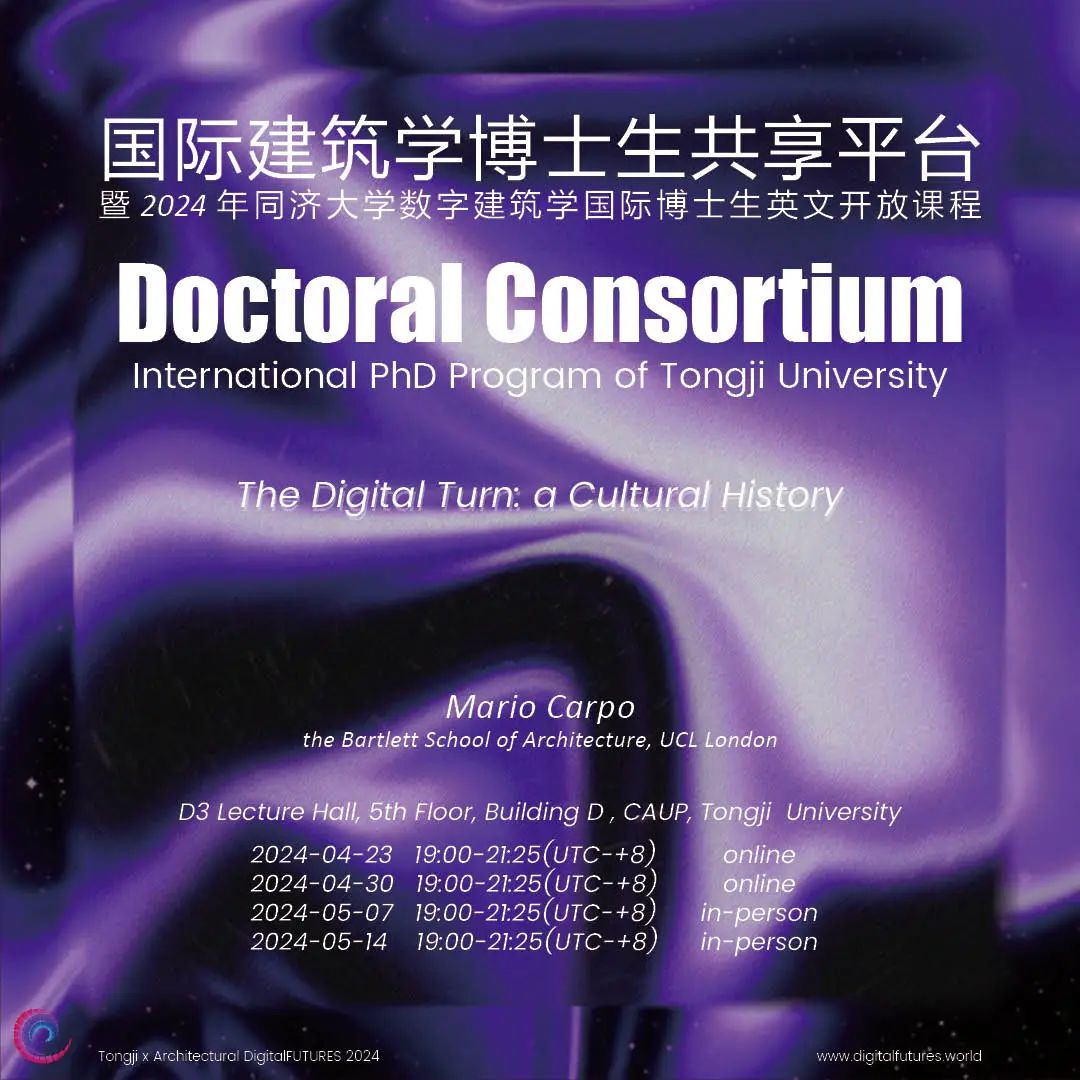

The seminar assesses the present state of computer-based design and fabrication by situating today's ‘digital turn’ within the long duration of the history of cultural technologies. It will first describe the technical logics of hand-making, mechanical reproductions, and digital making, and highlight the differences between digital variability, manual and artisanal variations, and the mechanical mass-production of identical copies. It will focus on some instances of identical reproduction that were crucial in architectural history, and particularly on the early modern invention of architectural notations and of architectural authorship (the rise of the ‘Albertian paradigm’ in the Renaissance), and on the modernist principle of mass-production and Taylorist standardization in the 20th century.
It will then outline a brief history of the digital turn and of its theoretical and technological premises: starting with a survey of the ‘prehistory of the digital’ in the 1950s, 1960s, and 1970s, then focusing on the turning point of the early 1990s: the legacies of Post-Modernism, Deconstructivism and the invention of the Deleuzian Fold; works of Bernard Cache and Greg Lynn; the rise of the spline-dominated environment in the late 1990s; the transition from free-form, topology and digital formalism to digital mass-customization and non-standard seriality. The seminar will then discuss the present state of digital design theory and computation, starting with the cultural and epistemological implication of Big Data and machine learning. The last sessions of the seminar will critique recent developments in Generative AI, particularly with regard to style transfer and to the role of datasets and other canonic references to precedent in architectural design.
This seminar will use as textbooks three recent monographs by the instructor: The Alphabet and the Algorithm (2011), The Second Digital Turn (2017) and Beyond Digital (2023), all published by the MIT Press. Specific references to chapters will be given for each talk.
Mario Carpo
the Bartlett School of Architecture,
UCL London
Mario Carpo, Reyner Banham Professor of Architectural Theory and History, the Bartlett School of Architecture, UCL London
Mario Carpo was the Head of the Study Centre at the Canadian Centre for Architecture in Montréal from 2002 to 2006, Vincent Scully Visiting Professor of Architectural History at the Yale School of Architecture from 2010 to 2014, Senior Scholar in Residence at the Getty Research Institute (2000-2001); Resident at the American Academy in Rome (2004); Guggenheim Fellow (2022-2023); etc.
Dr. Carpo's research and publications focus on the history of early modern architecture and on the theory and criticism of contemporary design and technology. His award-winning Architecture in the Age of Printing (MIT Press, 2001) has been translated into several languages. His most recent books are The Alphabet and the Algorithm (2011); The Second Digital Turn: Design Beyond Intelligence (2017); and Beyond Digital. Design and Automation at the End of Modernity (2023), all published by the MIT Press.
April 16 19:00-21:25(UTC-+8) online
April 30 19:00-21:25(UTC-+8) online
May 07 19:00-21:25(UTC-+8) in-person
May 14 19:00-21:25(UTC-+8) in-person
Address: D3 Lecture Hall, 5th Floor, Building D, CAUP, Tongji University
Zoom ID:846 8435 7062 Password: 125964
Architectural DigitalFUTURES is launched by College of Architecture and Urban Planning(CAUP), Tongji University and Shanghai Digital Architecture Fabrication Technology Center (SFAB) in 2011. International Union of Architects (UIA), Architectural Society of China (ASC), National Engineering Technology Research Center for Prefabrication Construction in Civil Engineering, and The Architectural Society of Shanghai China (ASSC) collaborate with global renowned scholars, architects, designers, enterprises and academic media in this field to establish an online and offline integrated educational platform relying on Architectural DigitalFUTURES. The events are consisting of lectures, conferences, workshops and exhibitions, etc. Nowadays, Architectural DigitalFUTURES as a global architecture exchange community, with the platform www.digitalfutures.world, encourages the inheritance and innovation, collaboration and communication of global knowledge in architecture and emphasizes scientific research about digital design theory, technology and artificial intelligence algorithms, robotic fabrication, etc. in the field of architecture and built environment.
 ABOUT US
ABOUT US




